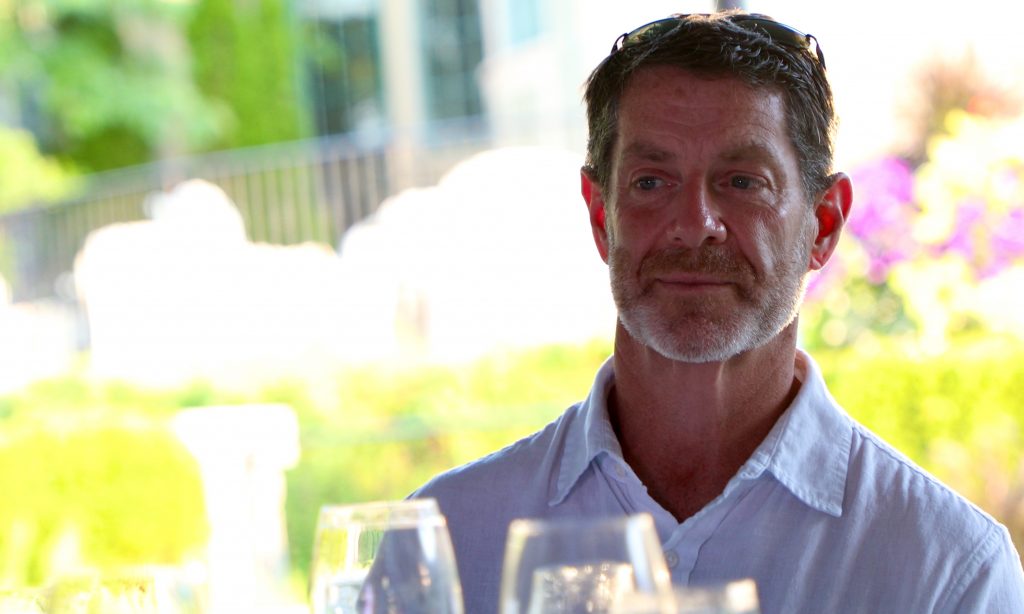
In 2016, when I was first introduced to the Sunbeam, Island Outreach Director and Chaplain Douglas Cornman, the only crew member aboard, gave me a tour of the boat. I remember walking from the wheelhouse onto the top deck. Douglas explained to me that the two white cylindrical hard-shell cases affixed to the roof held life rafts. If the cases ever hit the water, Douglas said, they open, and the rafts inflate, automatically.
Also affixed to the deck, near the cases, were stainless steel tie downs. Those, Douglas said, secured coffins when the Sunbeam traveled to or from funerals.
Funerals? Yes, funerals are an unsung service provided by the Sunbeam crew for islanders. Here, for the first time, Douglas Cornman, the Sunbeam crew member who officiates funerals, talks about what he says is “one of the most profound aspects of my work.”
=====
NORTHEAST HARBOR, ME – I have officiated over 11 funerals on the Sunbeam or on island since I started with the Mission in 2014. Now, these are only the funerals for which I’ve officiated the service. The boat has participated in other funerals since I joined the crew.
Who is eligible for a Sunbeam funeral? Islanders are eligible. There are no hard rules around this. The funerals I’ve officiated, or the Sunbeam has participated in, in some capacity have been for islanders from islands frequently visited by the Sunbeam.
The majority of funerals I’ve officiated have been on Matinicus where the Sunbeam plays a significant role in the life of the island. Matinicus doesn’t have a minister living on the island. It’s also a challenging island to get to because of it’s distance from the main land. I’m the island’s chaplain which is why most of my work officiating funerals is on this island.
In 2014-15, when I was still an interim Mission employee, Mission President Rev. Scott Planting asked me to do a fairly comprehensive assessment with islanders regarding what kind of Sunbeam crew member was needed to succeed Rob Benson, who had moved to the Bar Harbor Congregational Church as their minister.
I learned islanders want to know who’s going to marry them, and who’s going to bury them.
So I’m asked to officiate funerals for families where the Sunbeam or her crew, including the chaplain, has played a significant role in the families’ life. The islands that ask me or the Sunbeam to be involved typically do not have a year ‘round clergy presence.
The islands we serve all have active cemeteries, really sacred spaces on islands. No one desecrates an island cemetery.
There are people on Matinicus who, every summer, go to the cemetery and clean the grave markers so the lichen doesn’t cover up the names and destroy the markers. People really respect these places. They’re extremely important.
With a burial on land there’s a permanence because, whether it’s a full body burial, or a cremation; an urn with cremated remains, you know the essence of that person is permanently placed there. And a marker will always remind people that the person is there.
I’ve only dispersed ashes during burials at sea, never a body. I watch the ashes disperse. I watch them touch the water and the waves just carry them out into the sea where even the remains of the ashes, the shape they create, disappears, and once again becomes clear water. It’s as if the spirit of the person is truly released into the water, rejoining the universe. Because you just watch the ashes fade into the water and become part of the sea.
The Sunbeam crew gets involved in all kinds of ways. The boat can get involved in helping people grieve and transition when a family member has passed.
I think we all need to grieve in our own ways. But grieving doesn’t necessarily equate to sadness. People assume they should feel sad when a loved one dies. But I don’t know that sadness is the emotion that’s always felt.
Grief, if grief is an emotion, I think grief is the emotion that’s felt. I’ve been a part of funerals where there has just been so much laughter and joy. And that’s the emotion that is expressed through the grieving process.
Something that surprised me. I officiate over weddings and funerals. When I started this work, I thought I would find weddings to be more profound than funerals, but it’s the other way around.
I find officiating a funeral or a celebration of life really to be one of the most profound aspects of my work. I really get to know families. I listen to their stories, their grief, their memories. Then we come together. The time we take is really powerful. There’s something really special about walking alongside a family honoring the death of a loved one.
Even if I don’t intimately know the person who’s died, I find myself joining in the family’s grief. I think it’s the depth of emotion that families share with me that’s really profound. It’s a gift and I feel fortunate to receive it.
Learn more about the Sunbeam crew’s work.
